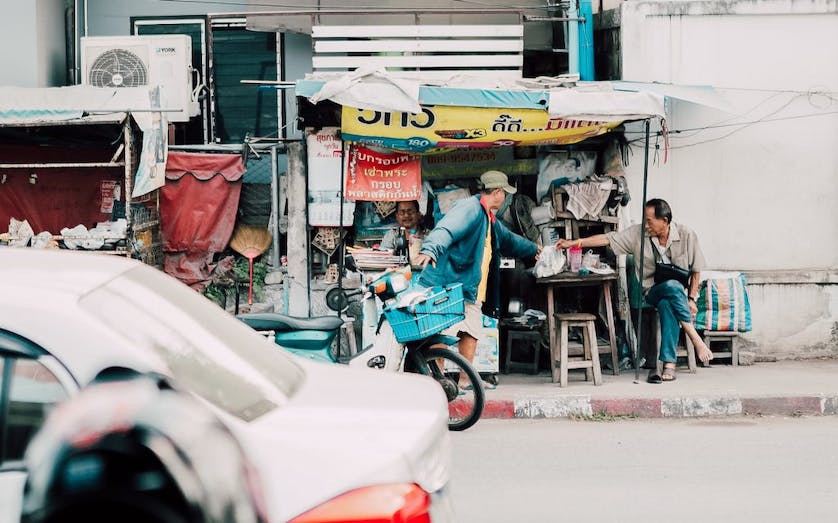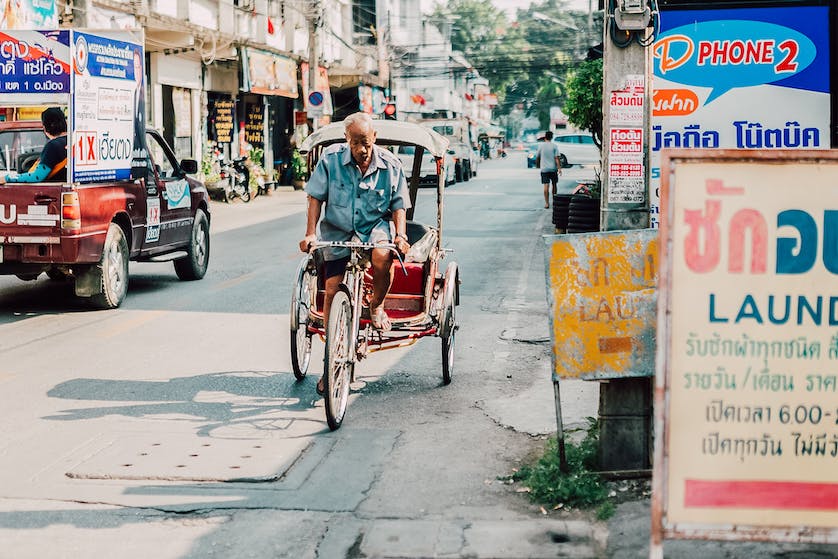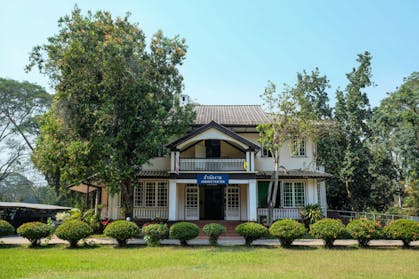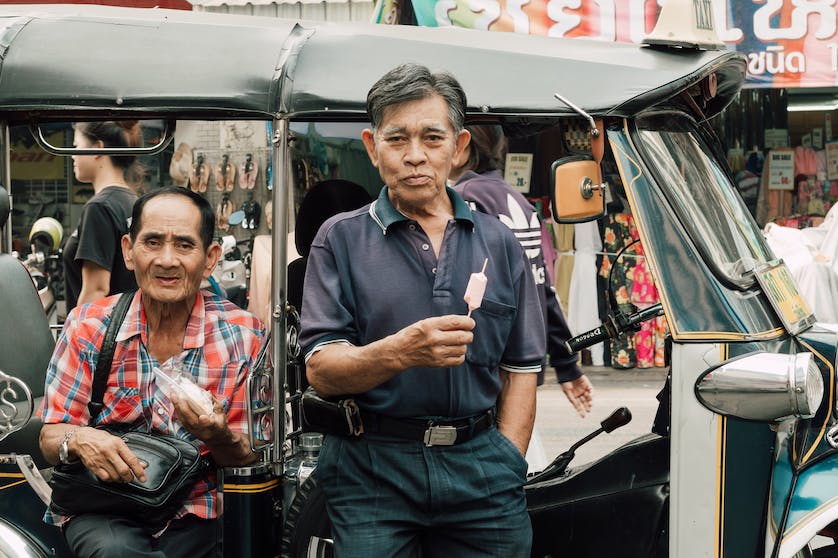While there are concerns over Thailand’s bourgeoning ageing population, with the topic popping up now and then in the media, the issue hasn’t been discussed as seriously as it is in countries such as Japan or China, until recently. However, according to the National Statistic of Thailand (NSO), two years from now the ageing population in Thailand is calculated to be around 20% of the total population and by the time we reach 2031 that ratio is forecasted to increase to over 28%. By then, our country will be in the same situation as Japan is in today, a super aged society. That means twelve years from now the country will face economic stagnation, a decrease in its workforce, and, of course, an increase in health care and welfare demands. This is a massive problem which we are yet to take seriously, let alone find solutions for.

Ageing populations is a world trend caused by the shrinking of fertility rates, the increase of life expectancy and the subsequence of the post-World War II baby boomer generation. Globally, 13% of the population is aged over 60, an amount that is growing at 3% each year. Currently, according to the United Nations, Europe has the greatest percentage of ageing populations of any region in the world.
“The ageing in Thailand have the advantage of a cost of living that is not shockingly high. Most of the comfort and support for the aged still comes from the family institution, but it is a concern that society and the government don’t have much to offer,” said Dr. Surat Tanprawate a neurologist at ChivaCare Medical & Physical Therapy Center. Last year, the Thai government announced that the ageing population is a national agenda, an announcement that Dr. Surat said should have happened ten years ago. According to a report by NSO, Thailand has been an ageing society since 2005. “The gap is getting bigger and bigger and we are too slow in addressing it. For example, last year homes for older people became a hot topic with Thai architects. Eventually, however, the lack of experts and specialists in safe home environment design was identified as a major challenge,” said Dr. Surat.
It is hard to talk about architecture and living facilities for the aged when our messy urban landscapes can’t even ensure safety standards for the healthy and young. How do you talk about wheelchair access when you don’t even have unobstructed footpaths? “Now that all city infrastructures have been built, how are we going change all that to accommodate the aged? Impossible,” said Dr. Surat, while adding another alarming number on the medical side. “Across Thailand, there are less than ten hospitals specialising in elderly care with only around 20 or so geriatric physicians nationwide.” The lack of staff in medical care services also includes those working as caregivers, which is much needed in the ageing population. “That forces the aged to turn to inexperienced young personnel who might come from our neighbouring countries and find it hard to communicate, or, for those who can afford it, a nursing home,” said Dr. Surat.

With increasing concern over the decrease of the work force, several countries have encouraged the extension of working life while high tech nations like Japan substitute the workforce with machines or artificial intelligence. Thailand, too, announced a policy to reduce taxes for companies employing older persons, but it is clear that employers still prefer to hire younger generations. Without a job, the elderly have no income. A 2016 research report by Government Savings Bank revealed that 74% of those over 60 in Thailand do not have enough savings to cover their retirement expenses. Currently, the government provides subsistence allowance for older persons at 600 baht per person per month., some of whom can add a further 600 baht each month to this allowance should they register to work as Village Health Volunteers. The idea is that children and grandchildren are obligated to take responsibility for their parents and grandparents as a sign of gratitude. “Let’s be honest here, with the income levels we have right now it is hard enough just to take care of ourselves,” said Warit Anuchiracheewa, General Manager of McKean Senior Centre. A statistic from the Bank of Thailand showed that only 37% of the ageing population rely on their children for their main source of income.
“Our mindset is very idealistic. What could be better than an elderly person living with their family? But the fact is our lifestyle has changed. We spend most of the time working and we move with our job and set up a separate family,” said Warit, explaining that many Thai elderly people end up living alone which might not be much of a problem when grandparents are still healthy and active, but when their health fails things get complicated. “Inevitably, one of the siblings will have to take the role as the most grateful child, perhaps quitting their job and staying at home with their parents to take care of them while the other siblings send money. What is worrying about this situation is that often by the time their parents pass away, that grateful child has nothing left. They may have lost their friends and skills to work and will then also end up living alone,” said Warit who compares the situation for elderly Thais to elderly foreigners who live at McKean, saying that foreigners tend to be much better prepared for their final years of life. Dr. Surat, however, is more optimistic in his outlook, saying, “our strong family institution makes older people not feel left out or a burden to society.”
The idea of leaving parents in a retirement home is still seen by many in society as ungrateful. Retirement homes are never the first option, in fact they are more likely to be the last. But that mindset is changing. “Now people in their 40s or early 50s are less likely to expect their children to take care of them. The decision maker is changing from family members looking out for their elderly, to those facing old age and beginning to plan for their retirement. I have many people in that age group come here for inspections, especially LGBT couples who don’t have children,” said Warit, talking about McKean Senior Centre, adding that there are at least 20 elderly homes in Chiang Mai offering a wide range of services.

“It’s not like every elderly person has financial security and family support, there are those whose children have died and sometimes they themselves have their grandchildren to raise,” said Sawang Kaewkantha, Executive Director of Foundation for Older Person’s Development (FOPDEV). A study reported by Government Savings Bank showed that 34% of the ageing population has income below the poverty line, which is less than 30,000 baht a year. These are the people who rely mostly on spare coin from the government. “But don’t underestimate the 600 baht allowance. I’ve seen some people using that money to raise their children until they graduate from school. It’s to their credit that they can stretch and barter their meagre 600 baht to borrow eggs or rice from a store. That 600 baht gives them confidence that there is at least some income coming in each month,” said Sawang who is pushing for a bill to increase subsistence allowance for older persons to1,000 baht a month. “The poverty line is about 2,500 baht, but to jump from 600 hundred to that is a bit too much to expect from the government, so I worked with researchers to come up with a poverty line on food and that’s about a 1,000 baht, so at least older people will get enough to eat,” said Sawang whose foundation has been established since 1999, in the days when ageing population was not as much of a topic of concern as it is today.

“The government does not entirely ignore the issue. We have things like universal health care that are really really good, but many policies are poorly executed. I’ve known many older people who refuse to leave the hospital in fear of having no one to take care of them, but in fact hospitals are obligated to visit older people at their residence to follow up on treatments. But these patients don’t know this because of poor communication. An interesting issue is that officials tend to work on areas that they’re familiar with which are typically small rural communities. They struggle to connect with the elderly in cities, as there has been no legacy of development and support. Why? Mainly due to local politics,” said Sawang whose work is mostly dedicated to vulnerable older persons, especially in slums. “For example, if the head of the community supports one political party but the village health volunteer supports another, then it’s going to be quite difficult for the volunteer to get any proposals through. It splits a community into fractions that makes it complicated to work with,” explained Sawang.
In 2005, the foundation set up a project that sought volunteers to care for older people in their homes. “Most older people in the lower classes live alone. Even if they’re under the same roof as their children. Because of poverty, their children may rarely be home because of work, or sadly, drugs or alcohol,” said Sawang. The project received fund from ASEAN-ROK Cooperation Fund, and was piloted in two communities in Chiang Mai – Srivichai and Muang Kai communities – with 27 volunteers aged between 36 to 74. “We found that the closer the ages of care givers and the elderly, the easier they bond,” said Sawang, who also trains the volunteers in all facets of care. “We’ve learned that it is best for a volunteer to come from the same community as the older person.” By 2012 when the fund was expiring, the network of volunteers became strong enough to register as a public benefits organisation. “Each community was able to set up homecare, and the volunteer clubs registered with the Provincial Social Development and Human Security Office, which allowed them to apply for funding, so the networks can operate sustainably,” said Sawang.
Now, the project is being developed into a social enterprise targeting a new group. “Many older people in the middle class need care too, so instead of providing a service for free through the goodwill of volunteers, we will start charging those who can afford it and pay caregivers a salary,” said Sawang who aims to target ethnic minorities as caregivers. “The salary is set at 8,000 baht a month which we will increase in the future. Now we have 20 young people in the programme who are properly trained for three months before taking a job,” said Sawang, presenting an alternative affordable assisted living service.
“Working with elderly people is not sexy, as their life is counting down,” said Sawang who hopes to see a more bottom-up approach from the society. “The topic is still underrepresented and society tends to disregard the role of older people. The top-down policies can only do so much but what we need is a society as a whole to work together for this group of people who are vulnerable.”



